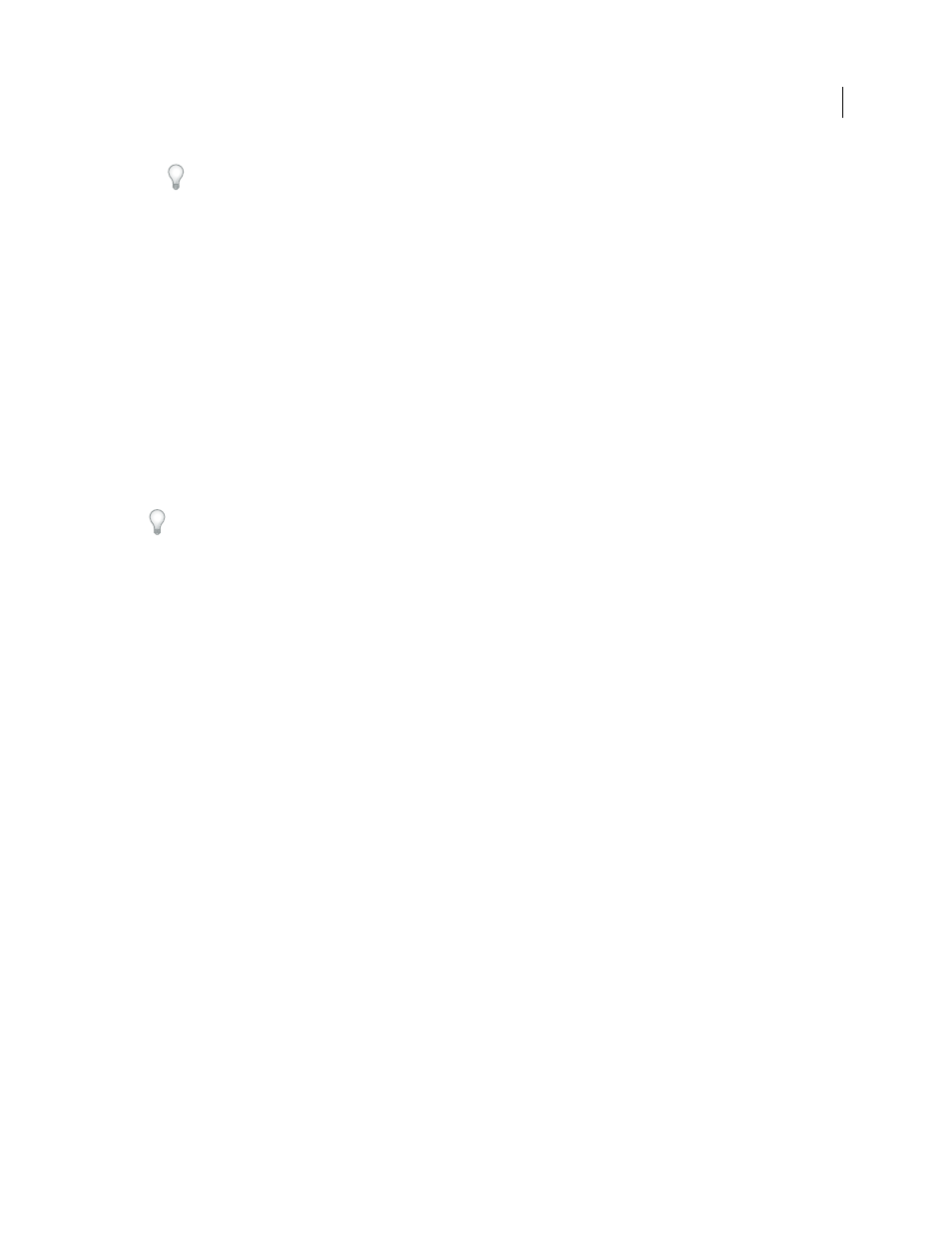About raster effects, Rasterization options – Adobe Illustrator CS4 User Manual
Page 362

355
USING ADOBE ILLUSTRATOR CS4
Creating special effects
To apply the effect and settings that were used last, choose Effect > Apply [Effect Name]. To apply the last used
effect and set its options, choose Effect > [Effect Name].
See also
Targeting items for appearance attributes
About raster effects
Raster effects are effects that generate pixels, rather than vector data. Raster effects include SVG Filters, all of the effects
in the bottom section of the Effect menu, and the Drop Shadow, Inner Glow, Outer Glow, and Feather commands in
the Effect > Stylize submenu.
Whenever you apply a raster effect, Illustrator uses the document’s raster effects settings to determine the resolution
of the resulting image. These settings have a large impact on the resulting artwork; therefore, it’s important to check
the document raster effects settings before you start working with effects.
You set rasterization options for a document by choosing Effect > Document Raster Effects Settings. (See
“
If an effect looks good on-screen, but loses detail or appears jagged when printed, increase the document raster effects
resolution.
Rasterization options
You can set the following options for all raster effects in a document or when you rasterize a vector object.
Color Model
Determines the color model that is used during rasterization. You can generate an RGB or CMYK color
image (depending on the color mode of your document), a grayscale image, or a 1-bit image (which may be black and
white or black and transparent, depending on the background option selected).
Resolution
Determines the number of pixels per inch (ppi) in the rasterized image. When rasterizing a vector object,
select Use Document Raster Effects Resolution to use global resolution settings.
Background
Determines how transparent areas of the vector graphic are converted to pixels. Select White to fill
transparent areas with white pixels, or select Transparent to make the background transparent. If you select
Transparent, you create an alpha channel (for all images except 1-bit images). The alpha channel is retained if the
artwork is exported into Photoshop. (This option anti-aliases better than the Create Clipping Mask option.)
Anti-alias
Applies anti-aliasing to reduce the appearance of jagged edges in the rasterized image. When setting
rasterization options for a document, deselect this option to maintain the crispness of fine lines and small text.
When rasterizing a vector object, select None to apply no anti-aliasing and maintain the hard edges of line art when it
is rasterized. Select Art Optimized to apply anti-aliasing that is best suited to artwork without type. Select Type
Optimized to apply anti-aliasing that is best suited to type.
Create Clipping Mask
Creates a mask that makes the background of the rasterized image appear transparent. You do
not need to create a clipping mask if you selected Transparent for Background.
Add Around Object
Adds a padding or border around the rasterized image, using the specified number of pixels. The
resulting image’s dimensions appear as the original dimensions plus the Add Around Object setting’s value. You can
use this setting, for example, to create a snapshot effect: Specify a value for Add Around Object setting, choose White
Background, and do not select Create Clipping Mask. The white boundary added to the original object becomes a
visible border on the image. You can then apply a Drop Shadow or Outer Glow effect to make the original artwork
look like a photo.